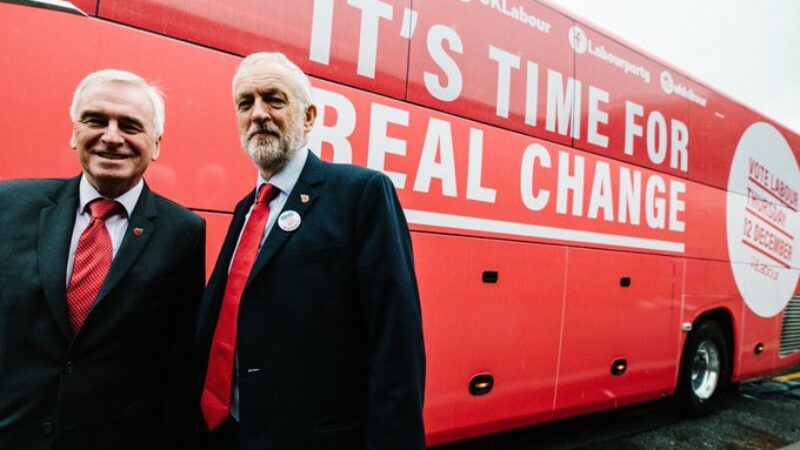
Listening to BBC Radio 4’s Today programme this morning, you’d think Labour had just announced a cull of all domestic pets by 2020. Outraged presenter after outraged interviewee filled the airwaves with reasons for which Labour’s biggest policy of this election campaign so far – free full-fibre broadband to every home and business by 2030 – was unachievable and undesirable. Here is why they’re wrong.
The policy is very straightforward. By 2030, Labour pledge to deliver FTTP – Fibre to the Premises – to everyone, and offer it free of charge. The plan is to nationalise Openreach, the infrastructure arm of BT, and make just over £20bn available to lay the new cables. The money to fund this project would come from Labour taxing multinationals including tech giants such as Amazon, Apple and Google.
Labour has a clear goal and a clear path to making this policy a reality. Compare and contrast this with the Tories who have, it was uncritically mentioned on Today, promised full-fibre by 2025 at a fraction of the cost. Why the difference? Is it because the Tories are better at maths than Labour? Can they really deliver the same thing, earlier, and at a quarter of the price? Of course not. Let’s dig into the detail. Here are the headline stats:
| Labour | Tories | |
| Type of broadband | Full-fibre – fibre to the home | Full-fibre, 5G and other gigabit-capable networks |
| By when | 2030 | 2025 |
| Funding promised | £20bn | £5bn |
| Broadband cost | £0 | £30/month (average) |
Currently, the majority of our internet runs on the same copper wires that power our landlines. It’s over 100 years old and not suitable for a modern economy. The average download speed in the UK is 46.2Mbps, but rural areas in the UK average 18.3Mbps – for context, this latter figure is below the recommended speeds for family usage of the same connection, let alone what a business requires. Every party agrees that the UK’s inability to keep up with European counterparts like Spain and Portugal is a shocking indictment of our failing telecoms market.
Earlier this year, the Prime Minister set a target of full-fibre to every home by 2025, five years earlier than the one proposed in the new Labour announcement. The Conservatives earmarked £5bn to achieve their aim. Sajid Javid, the Chancellor, then rolled back on Boris Johnson’s promise of fibre to every home by referring to “full-fibre, 5G and other gigabit-capable networks”. This is a very different promise.
While Labour are promising a roll-out of public internet at the fastest speed of internet possible, the Tories are promising to fund ongoing expansion projects by private companies of their own networks. By including 5G and a vague reference to gigabit networks, the Tories admit they are happy creating a two-speed nation where those in hard-to-reach areas are only able to access the slower and more variable speeds of mobile broadband.
For the Tory policy to be implemented, the taxpayer pays thrice: once to their broadband provider setting up the network to fund its creation; again to their provider at a premium to access the new network when it comes online; and finally to the government whose £5bn would come from general taxation. The cost to the taxpayer in Labour’s policy amounts to nothing – billionaire tech companies foot the bill.
Broadband charges are so high because they are largely a fund for further infrastructure development. By taking away the cost of developing that infrastructure from the taxpayer, what’s left is the minimal cost of connecting the customer. With newer technologies, maintenance and connectivity costs less. The public receive the benefits and shoulder none of the financial burden.
Implementing free full-fibre broadband to every home and business means creating a high-speed nation where everyone is connected. We can bring average internet speeds in rural areas above the recommended speeds for families, let alone businesses. This isn’t just a nice idea – this policy will make a real and transformative difference to people’s lives.




More from LabourList
Nudification apps facilitate digital sexual assault – and they should be banned
Diane Abbott suspended from Labour after defending racism comments
Labour campaign groups join forces to call for reinstatement of MPs